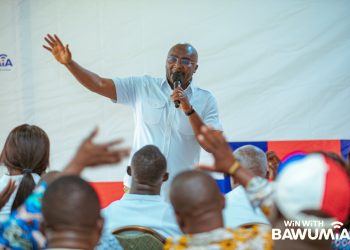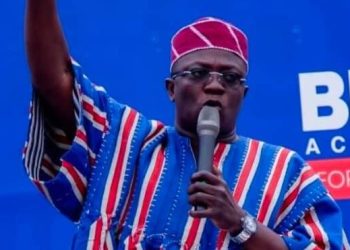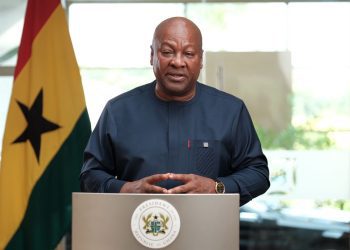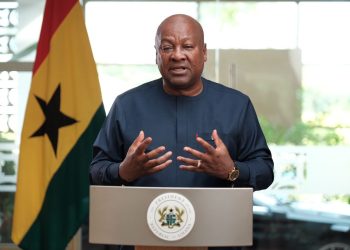The Ghana Coalition Against Galamsey has expressed disappointment with President John Dramani Mahama’s posture on illegal mining, saying his comments during Wednesday’s Presidential Media Encounter at Jubilee House failed to inspire hope in the fight against the menace.
Speaking on September 10, 2025, the president rejected calls for a state of emergency on illegal small-scale mining—popularly known as galamsey—and argued that existing laws already provide sufficient powers to act.
But campaigners say his tone and policy direction downplayed the scale of destruction that has turned the crisis into what they describe as “unprecedented environmental terrorism.”
A crisis of poisoned rivers and displaced farmers
In a press statement, the coalition reminded the president that more than 60 percent of Ghana’s rivers and waterbodies have been polluted with heavy metals, rendering them unsafe for human consumption and crippling water treatment facilities. Farmers across cocoa-growing belts and food-producing communities have been displaced, while vast sections of forest reserves have been destroyed.
At Kwanyarko in the Central Region, for example, turbidity levels at the water treatment plant reportedly reached 32,000 NTU, forcing regional authorities to shut it down on the very day the president addressed the nation.
“This is environmental suicide unfolding before our eyes,” one coalition statement warned.
Misplaced withdrawal of police taskforce
Particularly troubling to campaigners was the president’s decision to withdraw police taskforces from galamsey hotspots, arguing that security personnel could not reliably distinguish legal from illegal miners.
“The IGP’s men, though not perfect, were fearless and had brought the situation under control,” the coalition countered. “This withdrawal has emboldened operators, worsened pollution, and weakened enforcement.”
They also dared the presidency to “name a single licensed small-scale mining entity mining responsibly on the ground.”
Alternatives versus emboldening illegality
President Mahama’s insistence that alternative livelihoods must be created before miners are chased out was also sharply criticised.
Activists described the position as “misplaced compassion” that legitimises illegality and emboldens mining syndicates.
“This is not the leadership expected for a country facing contaminated cocoa exports, rising health crises, and poisoned food chains that will affect generations yet unborn,” the coalition said.
Disagreement over state of emergency
The fiercest disagreement came over the president’s refusal to declare a targeted state of emergency.
Civil society groups recalled that before his election, Mr. Mahama himself joined calls for such a measure when illegal mining was already devastating rivers.
“Circumstances have not improved—in fact, many indices have worsened,” critics argued, citing the closure of treatment plants, violent attacks on anti-galamsey activists, and evidence of cocoa contamination.
Organised Labour, religious leaders, and academia—who mobilised strikes, petitions, and prayer walks in 2024 to demand drastic action—say they feel betrayed by the president’s reversal.
A growing sense of disappointment
For campaigners, the government’s handling of the crisis has been reduced to rhetoric without decisive follow-through.
The coalition described the posture as “a disappointment to us all” and warned that without urgent extraordinary measures, the galamsey threat could overwhelm Ghana’s water security, agriculture, and public health systems.
“This government is failing us,” the statement concluded. “And the cost will be borne not only by today’s Ghanaians, but by generations yet unborn.”











